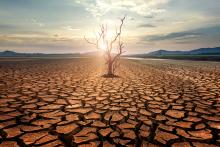This article is being featured in Special Feature: Mind Meets Machine
A young man with a mental disability is cheated of his late mother’s life savings by a man claiming to be a friend. A property agent takes advantage of an elderly man with an intellectually-disabled daughter, by pocketing the sales proceeds of a flat the client had engaged him to sell.
These are two of many cases of vulnerable persons in Singapore being financially abused - a consequence of systemic gaps, insufficient protective measures and a lack of financial planning by families of individuals with special needs.
Higher education has been central to Singapore's rise as one of the world's strongest economies. Now, these Institutes of Higher Learning (IHLs) have an additional role in shaping, influencing and contributing to Singapore's Green Plan 2030, a plan that sets out the Republic’s aspirations for a green, sustainable and resilient economy. This was the central point of discussion at the Straits Times Education Forum, held on 11 March 2023, in partnership with the Singapore Management University (SMU).
Governments around the world need to persist with extraordinary fiscal and monetary measures if they are to succeed in mitigating the economic fallout
Interest in mediation to resolve cross-border disputes has increased dramatically in recent years due to increasing access to the Internet and a growing number of small, local enterprises with overseas business.
The rise of new
No one could have predicted the meteoric rise of cryptocurrencies. After all, who would have thought that a digital asset without any intrinsic value could achieve such traction? But as cryptocurrency becomes increasingly popular, the digital currency secured by cryptography has faced challenges. Some experts believe that regulation is necessary to safeguard investors and legitimise the currency.
Wealth management in Asia has traditionally been dominated by traditional financial institutions. In recent years, however, as Asian markets matured and the number of high-net-worth individuals (HNWIs) in the region has spiked, External Asset Management (EAM) organisations have begun to fill the niche for bespoke services with more competitive pricing.
The latest report from the UN’s Intergovernmental Panel on Climate Change (IPCC) looks at the impacts, adaptation and vulnerabilities associated with the climate crisis, and we are three of the 270 scientists and researchers who wrote it. The document reports stark new findings on the way current global warming of 1.1℃ is impacting natural and human systems, and on how our ability to respond will be increasingly limited with every additional increment of warming.
The United Nations 26th Annual Climate Change Conference COP26 wrapped up in November with the adoption of the Glasgow Climate Pact. Negotiated by over 200 countries, the new pact to reduce global warming reaffirms the Paris Agreement to keep temperature increases below 1.5 degrees Celsius, which translates into tougher national pollution policies across every sector, particularly those related to transportation and energy production.










